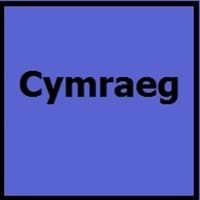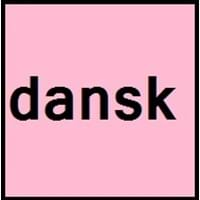Welsh and Danish
Countries
Wales
Denmark, European Union, Faroe Islands, Greenland, Nordic Council
National Language
Wales
Denmark, Faroe Islands, Germany, Greenland
Second Language
Not spoken in any of the countries
Not spoken in any of the countries
Speaking Continents
Europe
Europe, North America, South America
Minority Language
Argentina, United Kingdom
Argentina, Brazil, Canada, Germany, Greenland, Norway, Sweden, United States of America
Regulated By
Welsh Language Commissioner
Dansk Sprognævn (Danish Language Committee)
Interesting Facts
- One of the Celtic language still spoken with great numbers of speakers is Welsh language.
- Welsh was evolved from British , which was spoken by ancient Britons.
- Danish, Norwegian and Swedish are mutually intelligible, that means if u learn Danish is almost like learning three languages in one.
- There are 9 vowels in Danish language, which can be pronounced in 16 different ways.
Similar To
English Language
Norwegian and Swedish
Derived From
British Language
Old Norse Language
Alphabets in
Welsh-Alphabets.jpg#200
Danish-Alphabets.jpg#200
Writing Direction
Not Available
Left-To-Right, Horizontal
Thank You
Diolch
Mange tak
How Are You?
Sut ydych chi?
Hvordan har du det?
Good Night
Nos da
God nat
Good Evening
Noswaith dda
God aften
Good Afternoon
P'nawn da
God eftermiddag
Good Morning
Bore da
God morgen
Please
os gwelwch yn dda
Please
Sorry
Mae'n ddrwg gennym
Undskyld!
I Love You
Dw i'n dy garu di
Jeg elsker dig
Excuse Me
Esgusodwch fi
Undskyld mig
Dialect 1
Patagonian Welsh
Scanian
Where They Speak
Argentina
Sweden
Dialect 2
Y Wyndodeg
Jutlandic
Where They Speak
Gwynedd
Denmark
Dialect 3
Y Bowyseg
Bornholmsk
Where They Speak
Powys
Island of Bornholm
Speaking Population
Not Available
Not Available
Native Name
Cymraeg / Y Gymraeg
dansk
Alternative Names
Cymraeg
Dansk, Rigsdansk
French Name
gallois
danois
German Name
Kymrisch
Dänisch
Pronunciation
[kəmˈrɑːɨɡ]
[d̥ænˀsɡ̊]
Ethnicity
Welsh people
Danish people or Danes
Origin
9th Century
c. 1100 AD
Language Family
Indo-European Family
Indo-European Family
Subgroup
Celtic
Not Available
Branch
Brythonic
Not Available
Early Forms
Common Brittonic, Old Welsh, Middle Welsh
Old Danish, Early Modern Danish
Standard Forms
Welsh
Rigsdansk
Signed Forms
Not Available
Signed Danish
Scope
Individual
Individual
ISO 639 6
Not Available
Not Available
Glottocode
wels1247
dani1284
Linguasphere
50-ABA
5 2-AAA-bf & -ca to -cj
Language Type
Historical
Living
Language Linguistic Typology
Verb-Subject-Object
Subject-Verb-Object
Language Morphological Typology
Fusional
Fusional
All Welsh and Danish Dialects
Most languages have dialects where each dialect differ from other dialect with respect to grammar and vocabulary. Here you will get to know all Welsh and Danish dialects. Various dialects of Welsh and Danish language differ in their pronunciations and words. Dialects of Welsh are spoken in different Welsh Speaking Countries whereas Danish Dialects are spoken in different Danish speaking countries. Also the number of people speaking Welsh vs Danish Dialects varies from few thousands to many millions. Some of the Welsh dialects include: Patagonian Welsh, Y Wyndodeg. Danish dialects include: Scanian , Jutlandic. Also learn about dialects in South American Languages and North American Languages.
Welsh and Danish Speaking population
Welsh and Danish speaking population is one of the factors based on which Welsh and Danish languages can be compared. The total count of Welsh and Danish Speaking population in percentage is also given. The percentage of people speaking Welsh language is Not Available whereas the percentage of people speaking Danish language is Not Available. When we compare the speaking population of any two languages we get to know which of two languages is more popular. Find more details about how many people speak Welsh and Danish on Welsh vs Danish where you will get native speakers, speaking population in percentage and native names.
Welsh and Danish Language Codes
Welsh and Danish language codes are used in those applications where using language names are tedious. Welsh and Danish Language Codes include all the international language codes, glottocodes and linguasphere.





